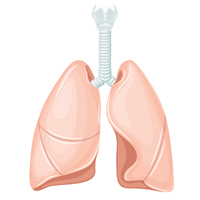MENU
- Home
- Overview
- Attorneys
- Practice Areas
- Firm News
- Blog
- Contact
 Exposure to the spores of certain types of mold can cause serious health problems. People with existing health issues or compromised immune systems are especially vulnerable to these dangerous molds. In many cases, toxic mold exposure could have been and should have been prevented.
Exposure to the spores of certain types of mold can cause serious health problems. People with existing health issues or compromised immune systems are especially vulnerable to these dangerous molds. In many cases, toxic mold exposure could have been and should have been prevented.
In these cases, victims of exposure may be entitled to recover damages for their illnesses through a toxic tort claim. Determining who is liable for dangerous mold exposure can be challenging, but there are some general guidelines regarding how toxic tort cases are handled.
Most forms of mold are not dangerous to humans or animals. These mold forms are found everywhere. They enter our homes through open doors, windows, and vents; and travel through the environment by attaching to people, animals, clothing, and other objects. Mold spores can typically grow in any place that has moisture.
However, some molds produce a dangerous poison called mycotoxin. When humans inhale mycotoxin spores, they can become severely ill. Toxic Mold Syndrome (TMS) is an umbrella term used to describe a variety of symptoms and illnesses caused by mycotoxin exposure. Toxic Mold Syndrome can cause: itchy or watery eyes, throat irritation, fever, nausea, mental fog, and shortness of breath.
People who are exposed to toxic mold in their home or place of business must establish who is responsible before filing a lawsuit. In some cases, there is one defendant; in others there are several. Property owners with mold in their homes should first review their homeowners’ insurance policy. Many policies cover mold infestation that is caused by a bad event, or “peril”, such as a fire or storm damage.
Realtors and prior owners can be held responsible if it is proven they were aware of its existence and failed to remediate it, or at least disclose it to buyers. In some cases, home inspectors who fail to detect toxic mold may also be held responsible for mold-related illness.
Engineers, architects, and contractors who design or build structures that develop toxic mold growth through faulty design or poor construction can be also be named defendants in toxic tort cases. Condominium residents exposed to toxic mold can hold their association liable for exposure, especially when the mold is located in a common area like a pool or gym.
Many defendants neglect to remove traces of mold because it is a complicated and often costly process. In some cases of severe contamination, entire structures must be completely removed and rebuilt. Buildings with structural issues like excessive humidity or leaks need to be repaired to prevent re-contamination. Children and seniors are highly vulnerable to the illnesses caused by exposure to toxic mold. Builders, owners, and landlords who fail to remove toxic mold and protect residents should be held accountable.
Attorneys at Jacobs & Crumplar, P.A. are skilled in proving that a plaintiff’s illness was caused by mold exposure, and that a defendant was negligent in preventing the exposure. To discuss your potential claim with a seasoned Wilmington toxic tort lawyer, call 302-656-5445 today complete our online contact form. We offer free consultations at our offices in Wilmington and Georgetown, and serve clients throughout the state, including those in Dover, Delaware.